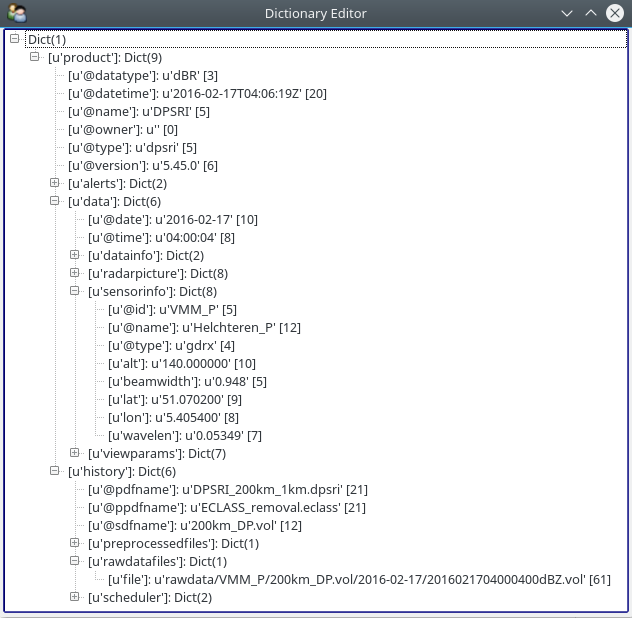Posted in 2016
Release 0.9.0
- 31 August 2016
- news
With this post, we announce the release of \(\omega radlib\) 0.9.0. It finalizes our transition from example Python scripts to jupyter notebooks (as already announced in a previous post). As a result, the documentation pages have become more consistent, and the handling of examples and tutorials more convenient and interactive. We hope you’ll agree!
As a consequence, the previous doc sections “Tutorials” and “Recipes” have been replaced by one single section Tutorials and Examples. The pages in that section were automatically built from jupyter (IPython) notebooks. These notebooks are distributed with the new release, and you can use them to interactively browse through our tutorials and examples. You can always download the latest notebooks from the wradlib repository.
introducing {{wradlib}} jupyter notebooks
- 26 April 2016
- wradlib
At a \(\omega radlib\) code-sprint early April, we thought about ways to make \(\omega radlib\) examples and tutorials more user-friendly, interactive and consistent.
Therefore, we decided to harmonise online tutorials and recipes together with the examples from the source distribution. All of them will be transformed as ready-to-use jupyter notebooks. These notebooks will be distributed along with wradlib, but they will also be rendered as tutorials/examples in the online documentation. In this ongoing process, all examples and tutorials will be reviewed and restructured if needed.
easy install using conda-forge
- 17 March 2016
- wradlib
With the help of an outstanding community effort named conda-forge, wradlib can now be more conveniently installed on linux, windows and osx.
Until now, installing \(\omega radlib\) and its dependencies could be tricky, with each OS having its own issues. On Windows, we so far recommended to satisfy all depencies via Python(x,y). This was convenient; however, it limited users to Python 2.7, and, more importantly, to 32-bit Python. This was a serious drawback particularly for memory-intensive applications.
Simple Treeview with traits
- 11 March 2016
- prog
Since we are continuously receiving inquiries regarding the work with Rainbow5(TM) radar data, I will present here a nice way of visualizing the dictionary representation of an arbitrary Rainbow5 file.
This code snippet makes use of the python packages traits and traitsui.

Release 0.8.0
- 10 March 2016
- news
As already announced in previous articles (#1, #2), we entirely moved our code development from bitbucket to github, and applied a major code revision to make \(\omega radlib\) compatible with both Python 2.7 and 3.5. The tremendous efforts to achieve this have been spearheaded by Kai Muehlbauer (University of Bonn). Thanks also to Jonathan J. Helmus from Argonne National Laboratory for valuable advice in the transition period.
Please understand that the bitbucket repository will no longer be updated, and only hosted as legacy code.
wradlib goes toward python3
- 29 February 2016
- news
With Pull Request #5 we made the first step to have \(\omega radlib\) support Python3. All tests are running fine now, so we consider this a straight conversion. Nevertheless, there is an open issue which gets hold of remaining conversion problems. If you find a bug or issue, please report it there.
wradlib moves to github.com
- 29 February 2016
- news
After over a year of reflection and thoughts, we finally decided to move from bitbucket to github.
This means also to switch the versioning system from mercurial to git. The repository was transferred to git via hg-git. Thus, the commit history is available right from the beginning. The wradlib repo at bitbucket will be left available for reference.